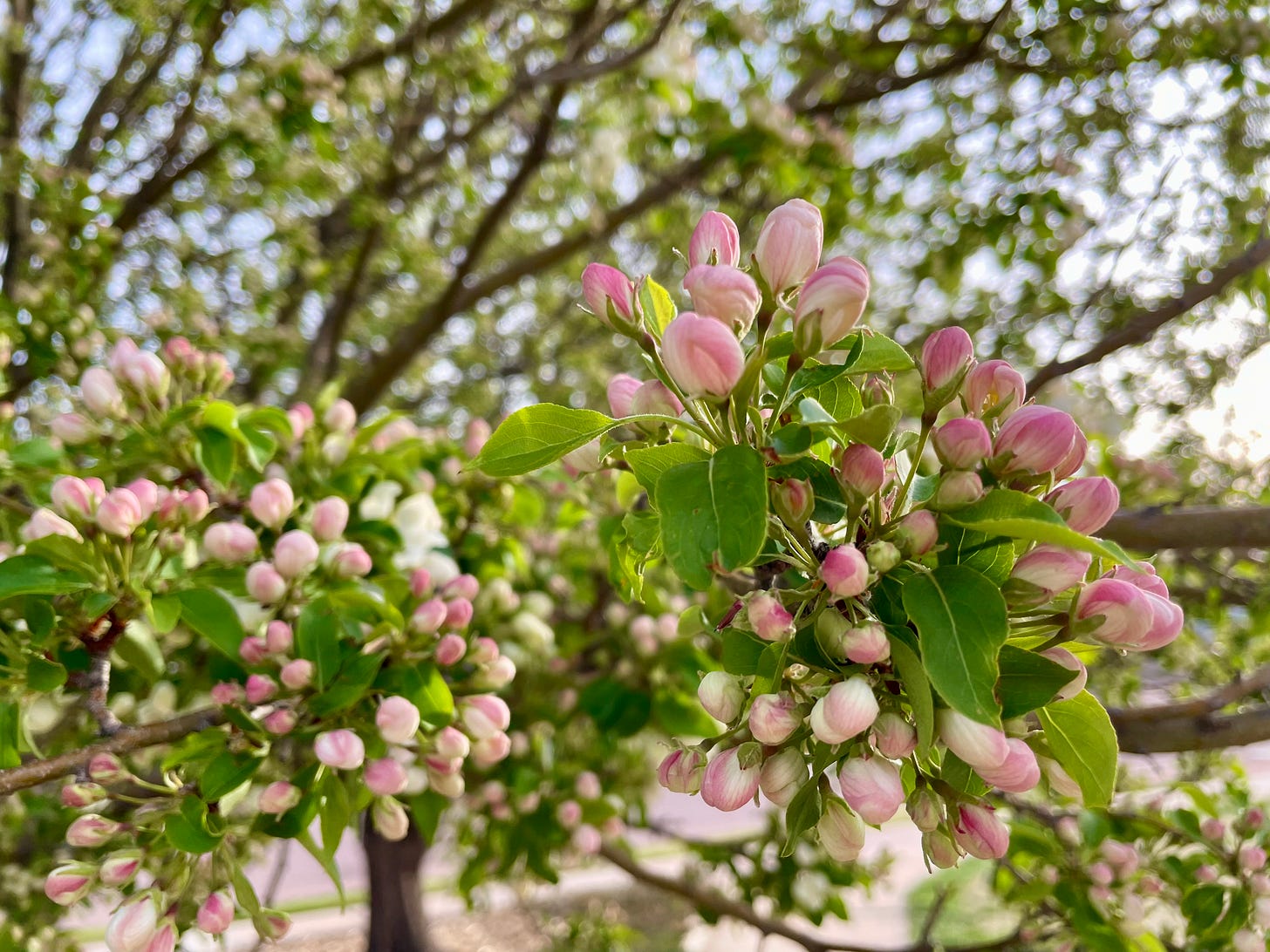Quitting Isn’t Failing: What a Two-Week Pause Taught Me About Creative Survival
I temporarily quit my dream of becoming a novelist. What happened next surprised me—and might help you trust your own pauses.
Some dreams don’t bloom on our timeline.

Welcome to Part 2 of Living with Big Dreams’ 3-part series: “When the Dream Grows Quiet.”
In Part 1: “When Your Dream Falls Silent: A Personal Confession About Doubt,” I confessed to my writing coach, bestselling author Camille Pagán, that my dream of becoming a career novelist was dead. She recommended a 2-week quit. Here, in Part 2, I write about what happened during that quit. Next month, I’ll share the results. Whether you’re chasing a creative dream, considering a career pivot, or simply trying to find your next right step—you are not alone.
Maybe, like me, you’re chasing a dream with all you’ve got. Like a prayer, you tuck your hopes on the altar of your identity. You show up fully, sacrificing your wellbeing, only taking breaks when your eyes water because your bladder is full, or to pause for a quick meal. Some folks forget to eat when they’re in the flow, but I’ve never been that kind of dreamer.
Still, we push. And then one day, we show up with nothing. No spark. No energy. No ideas. Worse, we don’t care.
And in slinks the most terrifying thought: I need to get a real job.
Whatever that is.
When Camille suggested a temporary quit—the ultimate litmus test—I trusted her advice and gave myself over completely for two weeks.
During that time, I felt like Life, the Universe, and Everything (LUE) were conspiring in my favor.
Evelyn Skye said in her book club, “Writing full time is a huge burden and drain on your creativity if you think you have to live by those words.”
On the first morning of my quit, I curated my skills and updated my resume. I felt empowered when LinkedIn and Indeed recommended jobs like Content Strategist, Creative Director, and Editorial Director with full benefits and $100,000 salary. After years without income, I wasn’t sure if I was hireable. But suddenly, I saw that I was more than qualified.
And the offers were tempting. With that kind of money, my husband and I could vacation in Spain again. I could afford clothes that fit and splurge on hydrating facials.
But working full-time in a corporate role would’ve meant channeling all my creative energy into someone else’s dream—something I promised myself I’d never do again, back when I was living in Hawaii.
I wasn’t ready to go full-time, but I still needed income, so I applied for part-time, remote work.
I reached out to Living with Big Dreams subscribers, hoping to understand what mattered most to them—and how I could shape my work into something they’d financially support.
I polished abandoned drafts of short stories, essays, and poems and submitted them to literary outlets that pay contributors.
Then I cried. All day. The grief came in a wave. I wasn’t just mourning a novel—I was letting go of the fantasy. The overnight transformation. The single, career-launching debut. Letting that go didn’t break me. It opened space.
“Feeling guilty about taking time to do the thing when there’s no guarantee, doesn’t honor the work of this career,” Camille advised me during my second coaching session about quitting. “Behind every successful novelist is boatloads of work that never showed or proved anything.”
My interview with Lauren Parvizi ran. She spoke about drawer drafts—the ones that never sell. Without hers, she wouldn’t have had a debut. Or a second novel.
It was the first time that I’d considered that this novel might not work out.
Choosing to quit felt less like failure, and more like a red leaf falling to earth—quiet, natural, inevitable. Maybe surrender isn’t weakness. Maybe it’s part of tending a life you love.
So I gave myself kindness. I played with my puppy, listened to music, went for walks, journaled, wrote a list of pros and cons, and meditated. I attended leisurely yin yoga classes, took naps, and read fiction for fun.
I continued with my second round of Improv 101 classes. On the seventh day of my quit, my instructor said Peak Improv Theater was hiring a part-time remote business manager. I applied the next day. Two days later, I had the job.
Taking the job wasn’t failure—it was a bridge. It gave me income, real-world community, and reminded me I’m not defined by one novel.
My white-knuckle grip left me feeling defeated when things didn’t go according to my plan. I equated detours with failure, and attached my identity to one path.
Rest, reflection, even naps with my dog—all of it was creative work, too. Slower, softer, but no less essential. Because living with big dreams isn’t just about staying in motion. It’s about trusting the pause—so you can begin again.
Next month, in Part 3: The Result, I’ll share how stepping away led to breakthroughs and renewed passion, and how can lead to long-term success.
I write Living with Big Dreams for people chasing something bigger—whether it’s a creative calling, a career pivot, or the quiet hope that it’s not too late to begin again.
Subscribe for personal essays, dream-fueling recipes, and real talk about the messy, magical process of building a meaningful life.
✨ Free & patron options
✨ Three emails a month (no spam, ever)
✨ Written with heart, for dreamers like you






I'd held "C" level jobs in high tech before the dot com crash served up my truth, that I was a writer--that I always had been a writer and that my corporate ladder climbing was literally barking up the wrong tree. I ended up taking a full-time job (bills and a roof over my head, etc.) in an industry I was trained for and cared about: healthcare. It was a job that paid well, had insane benefits and that I could do in a couple of hours a day, most days. The rest of the time I wrote (yes, at work). My first novel got decent agent interest, but no takers. I flailed a bit, then wrote the second one. It's out on query now. And I've started a third with a caveat: I'm giving myself this summer to do exploratory writing (Camille's suggestion of course, love her). Your dream will come back. Phil Stutz, an amazing psychiatrist who's written a couple of mind-blowing books claims that three things in life are unavoidable: pain, uncertainty and the need for constant work. Very Buddhist, and for me very true. None of that detracts from our dreams though--not avoiding reality imho helps strengthen them. Hugs for you, Marta. Can't wait to read the third installment.
Thanks for this. Some of the blah feelings and disappointment around creativity and such can be traced to burnout that can sneak up on us. The way a dream shows up can be nothing like we imagine it. And it might mean stepping away for a while or, looking at old work and see it a new way. Looking forward to part 3!